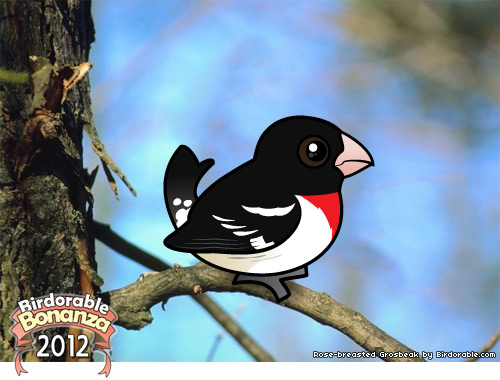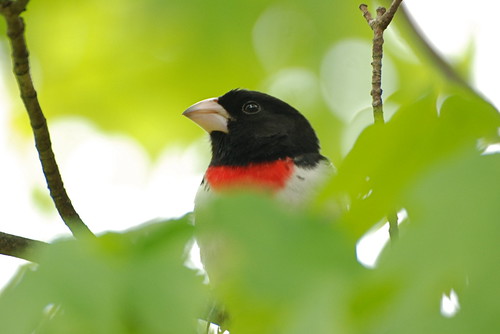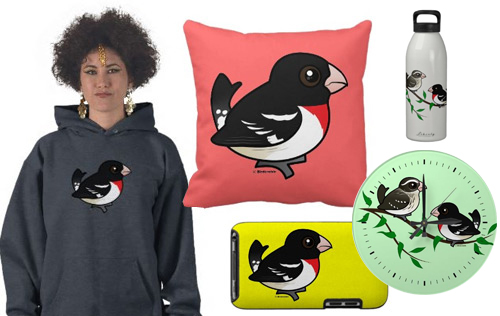Bonanza Bird #1: Rose-breasted Grosbeak
For 22 days we're adding a new Birdorable bird every day as part of our Birdorable Bonanza 2012. We're counting up to our 400th species! We proudly kick off our Bonanza 2012 with a beautiful species native to the Americas: the Rose-breasted Grosbeak!

Rose-breasted Grosbeaks are small songbirds that breed across the Northeast of the United States and across much of Canada. These migratory beauties head south in the fall, spending the winter in Central and northern South America. Males have a shock of red on the chest, for which the species is named. Females look very different; they are sometimes mistaken for sparrows.

Rose-breasted Grosbeak by Putneypics
Did you know ...
- Most birds keep quiet while incubating eggs to avoid attention from predators, but male and female Rose-breasted Grosbeaks sing quietly to each other when they exchange places on the nest, and the male sings his normal song while near or even on the nest;
- Rose-breasted Grosbeaks love moonlit nights and sometimes sing all night long when the moon is shining;
- In areas where their range overlap, Rose-breasted Grosbeaks may cross-breed with Black-headed Grosbeaks. Babies can look like either parent, or have a mixed pattern;
- Its nest, which is built from twigs in treetops, is often so thinly constructed that the eggs can be seen from below;
- Birdhouses built for bluebirds may also be used for Rose-breasted Grosbeaks;
- Their large beaks allow them to eat large grasshoppers and other insects that have tough exoskeletons;
- Rose-breasted Grosbeaks love sunflower seeds and will be attracted to hopper feeders containing striped or black-oil sunflower seeds.

Tomorrow's bird is endemic to the Hawaiian islands. Can you guess what it will be?






Comments
Leave a comment
Thank you!